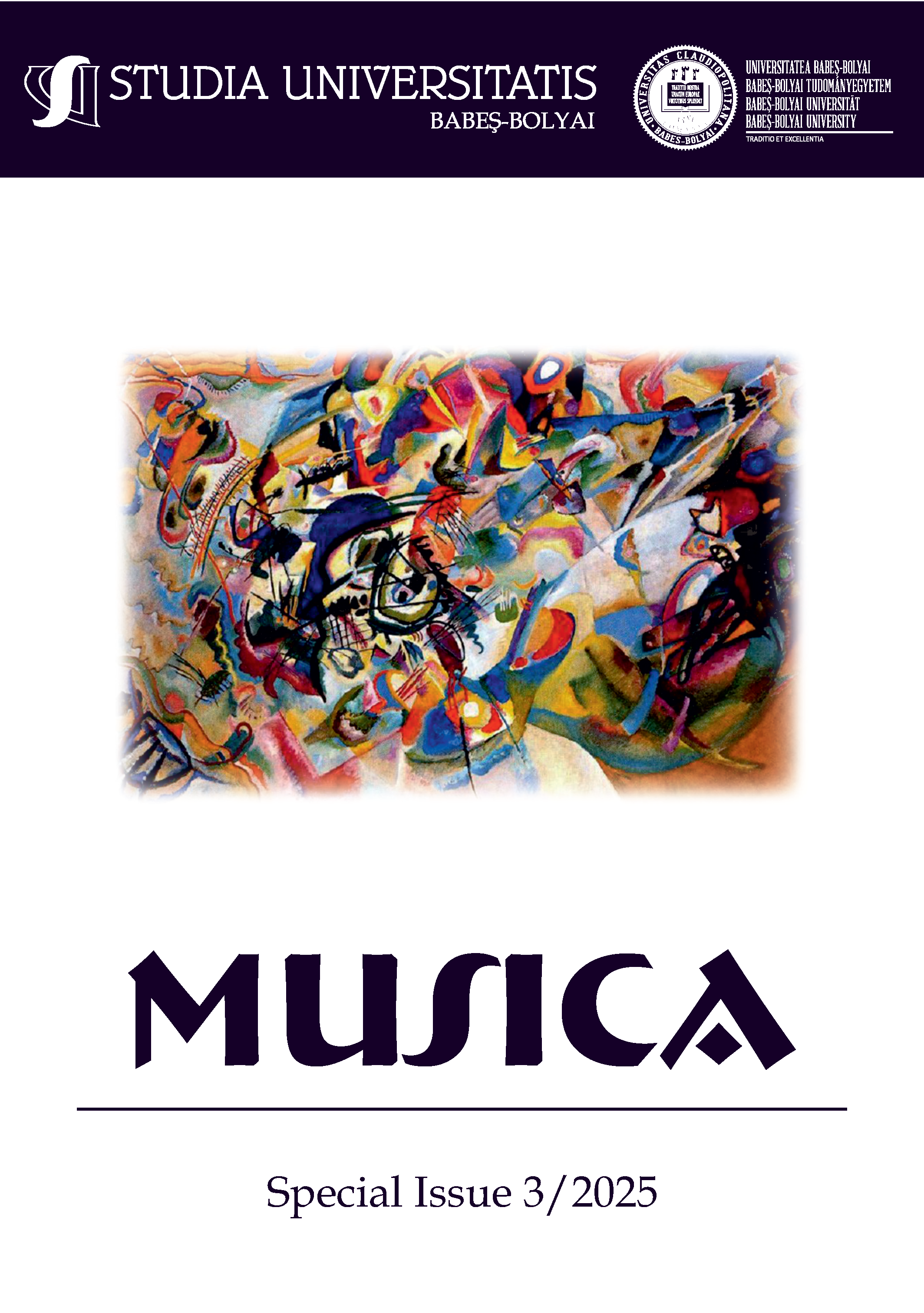MUSIC AS SILENCE: SCHÖNBERG, NONO, AND THE POLITICS OF EXPERIENCE
DOI:
https://doi.org/10.24193/subbmusica.2025.spiss3.12Keywords:
Schönberg, Nono, Agamben, Anthropocene, experience, silenceAbstract
Arnold Schönberg and Luigi Nono stand as emblems for a certain sort of difficulty in music, a difficulty charted by Schönberg himself in his essay, “How One Becomes Lonely.”[1] But this “difficulty” may have a purpose for us, at this time, either intended or unintended. Here I approach the “difficult” music of these two composers through the concept of experience, as described and discussed by Giorgio Agamben. Agamben’s thesis concerning the formation of human subjects through a process of infancy is outlined, and related to the work of these two specific composers, in order to think about the place and function of music in a noisy world: what possibilities does this particular, “difficult” music hold for us, now, in the middle of multiple and ongoing, existential and planetary crises?
[1] Schönberg, Arnold. “How One Becomes Lonely (1937).” In Style and Idea, ed. by Leonard Stein, trans. by Leo Black, Faber and Faber, London, 1975, pp. 30-52.
References
1. Adorno, Theodor Wiesengrund. Philosophy of Modern Music. Trans. by Anne G. Mitchell and Wesley V. Blomster, Sheed and Ward, London, 1973.
2. Adorno, Theodor Wiesengrund. Aesthetic Theory. Trans. by Robert Hullot-Kentor, Continuum, London, 2004.
3. Adorno, Theodor Wiesengrund. Minima Moralia: Reflections from Damaged Life. Trans. by E. F. N. Jephcott, Verso, London, 2020.
4. Agamben, Giorgio. Infancy and History: On the Destruction of Experience. Trans. by Liz Heron, Verso: Radical Thinkers, London, 2007.
5. Barad, Karen. Meeting the Universe Halfway: Quantum Physics and the Entanglement of Matter and Meaning. Duke University Press, Durham, NC, 2007.
6. Cage, John. Silence. Wesleyan University Press, Hanover, NH, 1961.
7. Deleuze, Gilles. The Logic of Sense. Trans. by Mark Lester with Charles Stivale, ed. by Constantin V. Boundas, Continuum, London, 2004.
8. Dewey, John. Art As Experience. Minton, New York, NY, 1934.
9. Hall, Stuart. Essential Essays, Volume 1: Foundations of Cultural Studies. Ed. by David Morley, Duke University Press, Durham, NC, 2018.
10. Lachenmann, Helmut. Music als existentielle Erfahrung: Schriften 1966-1995. Ed. by Josef Häusler. Breitkopf & Härtel, Wiesbaden, 1996.
11. Levi-Strauss, Claude. The Savage Mind. The University of Chicago Press, Chicago, IL, 1966.
12. Lewis, Simon L., Maslin, Mark A. “Defining the Anthropocene.” Nature 519 (2015), pp. 171–180. https://doi.org/10.1038/nature14258
13. Malaspina, Cecile. An Epistemology of Noise. Bloomsbury Academic, London, 2018.
14. Nono, Luigi. Nostalgia for the Future: Luigi Nono’s Selected Writings and Interviews. Ed. by Angela Ida De Benedictis and Veniero Rizzardi, University of California Press, Oakland, CA, 2018.
15. Schoenberg, Arnold. The Musical Idea and the Logic, Technique, and Art of its Presentation. Ed. and trans. by Patricia Carpenter and Severine Neff. Indiana University Press, Bloomington, IN, 2006.s
16. Schoenberg, Arnold. Style and Idea. Ed. by Leonard Stein, trans. by Leo Black, Faber and Faber, London, 1975, pp. 30-52.
17. Trevarthen, Colwyn. “Communication and cooperation in early infancy: a description of primary intersubjectivity.” In Before Speech: The beginning of interpersonal communication, ed. Margaret Bullowa, Cambridge University Press, Cambridge, 1979, pp. 321-395.
18. Tsing, Anna, Jennifer Deger, Alder Keleman Saxena, and Feifei Zhou. Field Guide to the Patchy Anthropocene: The New Nature. Stanford University Press, Stanford, CA, 2024.
Downloads
Published
How to Cite
Issue
Section
License
Copyright (c) 2025 Studia Universitatis Babes-Bolyai Musica

This work is licensed under a Creative Commons Attribution-NonCommercial-NoDerivatives 4.0 International License.



